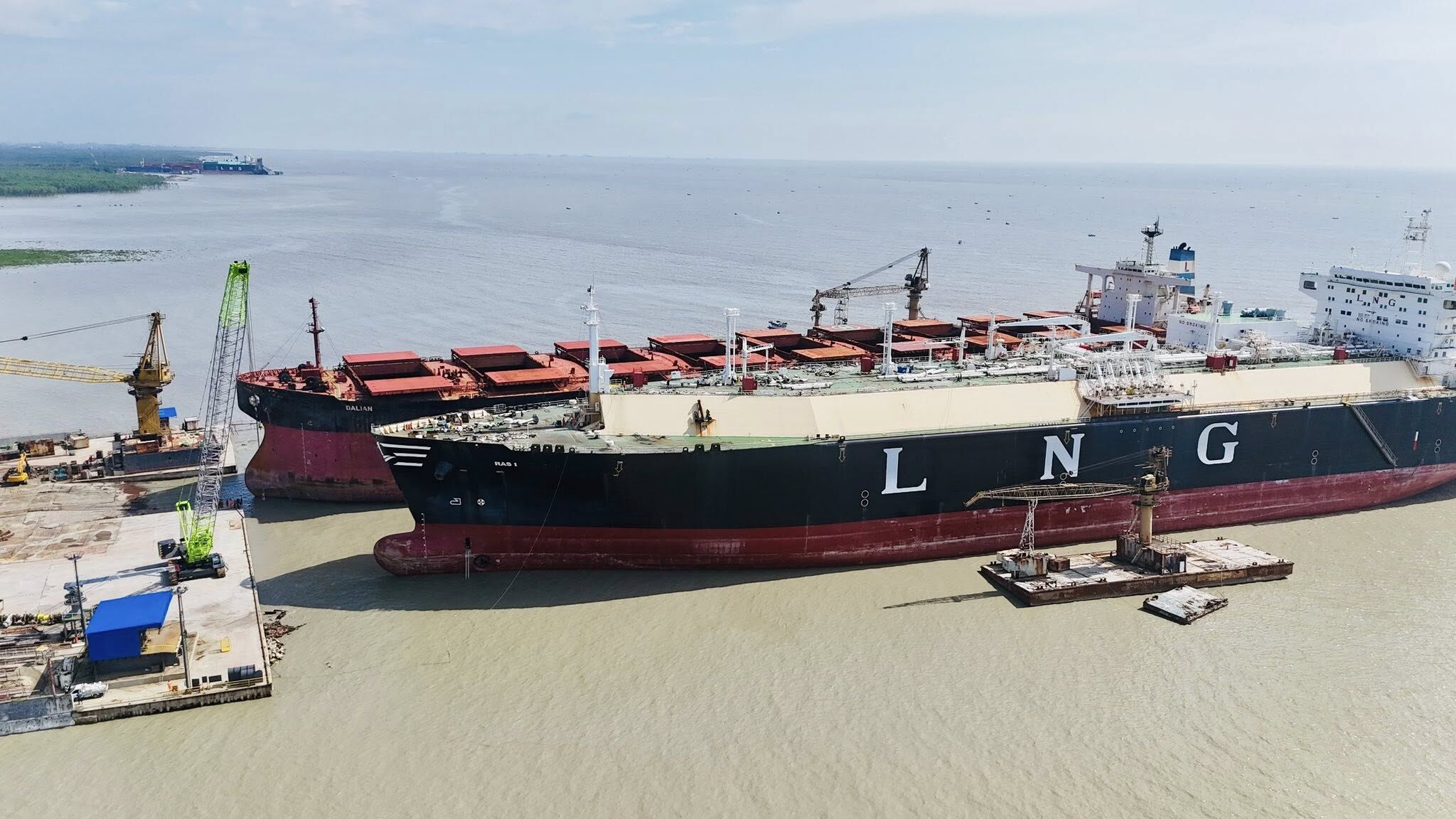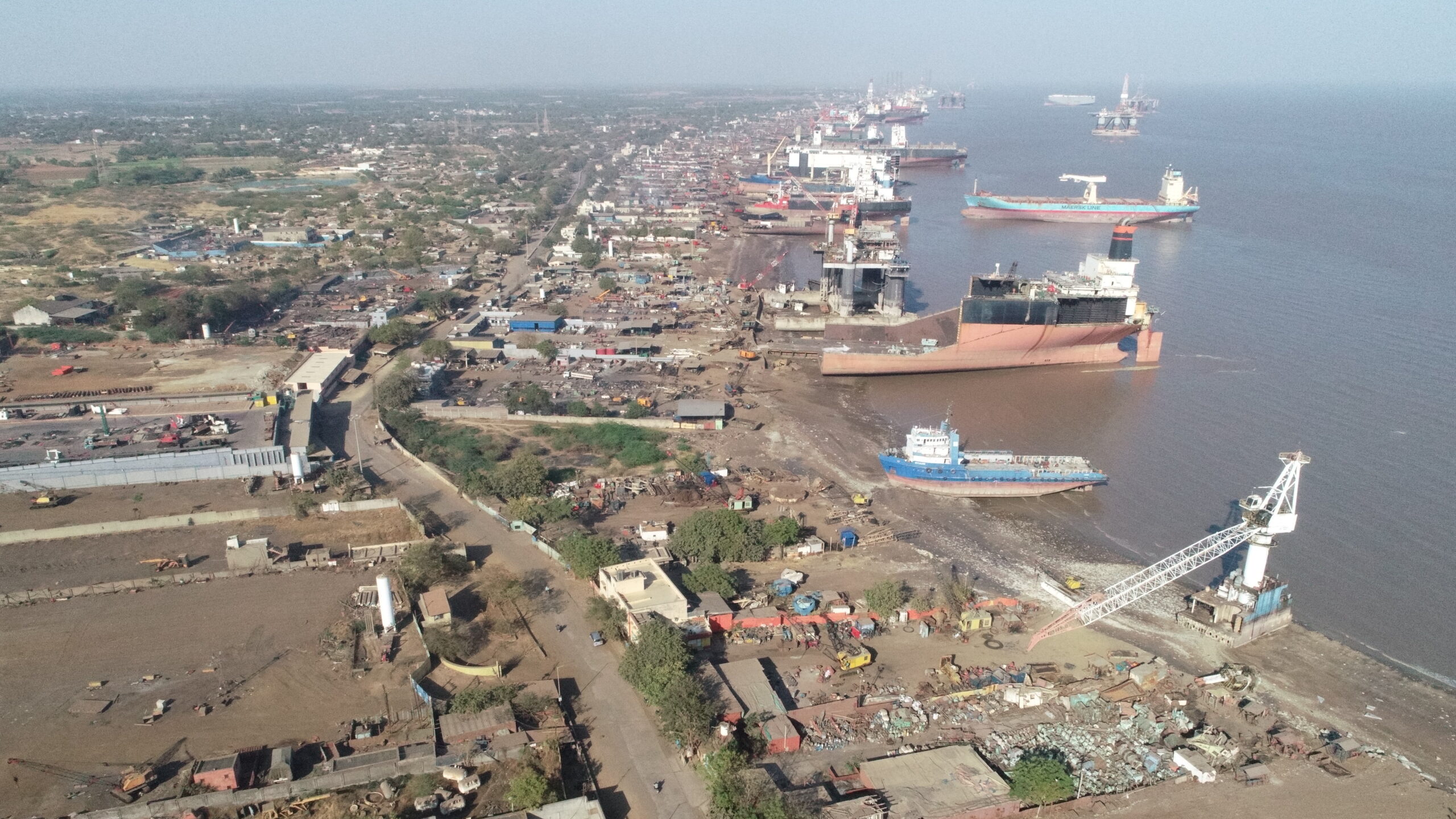Ship Recycling Market Sees Positive Movements Amid Challenges

For the second consecutive week, ship recycling markets have experienced positive movements, largely driven by the firming of Chinese plate prices observed in the previous week. According to a report by leading cash buyer GMS, local plate prices in recycling hubs have remained on solid ground, contributing to a cautiously optimistic outlook across the industry. However, this fragile momentum is threatened by a scarcity of available tonnage for recycling and external factors like fluctuating global currencies and regional instability.
Positive Developments in the Ship Recycling Market
The ship recycling industry has seen some recovery recently, with local plate prices firming up across several major recycling destinations. Plate prices, which refer to the value of steel plates recovered from scrapped ships, serve as a key indicator of demand and profitability in the industry. Over the past couple of weeks, these prices have shown a steady increase, especially in India, Pakistan, and Turkey, signalling a modest rebound after months of stagnation.
The optimism is largely attributed to China’s strong domestic demand for steel. Despite ongoing holidays in China, which have temporarily paused some of the market activity, the ripple effects of this increased demand have been felt in global markets. As a result, recycling nations have seen improvements in their steel prices, though the momentum remains precarious.
Tonnage Shortages Continue to Hinder Growth
Despite these positive movements, GMS warns that the industry remains constrained by a critical issue: a persistent shortage of available ships for recycling. This has been a defining characteristic of what GMS describes as a “dark year” for the ship recycling market. The lack of tonnage — referring to ships that are ready to be scrapped — has severely limited the ability of recycling yards to capitalize on the improving plate prices.
This tonnage shortage is not a new issue. Ship recycling has been facing dwindling supplies of obsolete vessels as shipowners, in many cases, opt to keep their vessels in operation due to favourable freight rates and extended life spans due to retrofits. This has left shipbreaking yards in key recycling countries like Bangladesh, Pakistan, India, and Turkey scrambling for ships to dismantle. Without a steady supply of ships, even the most favourable market conditions will fail to significantly boost the industry.
Currency Depreciation Adds to Uncertainty
Further complicating matters, the depreciation of local currencies against the U.S. dollar has added a layer of volatility to the market. Following a 0.5% interest rate cut by the U.S. Federal Reserve a few weeks ago, global currencies took time to adjust. In the wake of this adjustment, many recycling nation currencies resumed their downward trajectories, adding uncertainty to the outlook.
GMS highlights that this depreciation poses a real risk to the ship recycling markets. When local currencies weaken against the dollar, it becomes more expensive for recycling yards to acquire ships, as transactions are typically denominated in U.S. dollars. As a result, many recycling markets, already struggling with the tonnage shortage, are now faced with even higher costs of doing business, further restricting their ability to compete for the few available ships.
Regional Market Highlights
India: The Bright Spot
Among the recycling nations, India stood out as the most positive performer in recent weeks. Local plate prices in India have firmed up, driven in part by China’s strengthening demand for steel and the country’s own domestic needs. While there is cautious optimism surrounding India’s ship recycling sector, there are concerns that the market may have reached a state of equilibrium, where further gains could be difficult to achieve without a significant influx of ships for recycling.
Still, India’s recycling yards remain better positioned compared to their counterparts in Bangladesh and Pakistan, where market conditions have been less favorable. The relative stability in Indian plate prices offers a glimmer of hope for ship recyclers, though sustainability remains in question due to the wider global economic challenges.
Pakistan: Reactionary Gains
Pakistan’s ship recycling industry, located in the coastal town of Gadani, has recorded modest improvements in response to recent firming plate prices in China. These gains, however, appear to be largely reactionary, with Pakistan following in the footsteps of China’s steel market rather than driving independent growth. Nevertheless, the firming prices in Gadani have helped offset some of the uncertainty stemming from local currency depreciation and the global tonnage shortage.
Bangladesh: Lagging Behind
While India and Pakistan have seen modest improvements, Bangladesh has continued to slip in market rankings. Traditionally one of the largest ship recycling destinations, Bangladesh has struggled in recent months due to a combination of factors, including weaker plate prices and rising operational costs. Despite its extensive shipbreaking infrastructure, the country’s market share has been shrinking, and unless conditions improve, it could continue to fall behind its regional competitors.
Turkey: Slow But Steady
Turkey, which typically operates at the lower end of the ship recycling market, has seen some positive developments. Steel prices in Turkey have firmed up, while the Turkish lira (TRY) has continued to depreciate. These mixed factors have contributed to a slow but steady improvement in Turkey’s ship recycling prospects. However, like other recycling nations, Turkey remains hamstrung by the lack of available tonnage and broader economic uncertainties.
Impact of Global Stimuli and the Road Ahead
Looking beyond the immediate challenges, there are broader economic factors that could influence the trajectory of the ship recycling market in the coming months. Global stock markets have rallied recently, buoyed by announcements of economic stimuli in China. These measures, introduced as part of China’s 75th Anniversary of Communist Party rule, are expected to have a positive impact on global trade and steel demand. If these initiatives successfully boost China’s economy, it could lead to sustained demand for steel and, in turn, support higher plate prices globally.
However, the ongoing October holidays in China have temporarily stalled any significant market movements, leaving recyclers waiting to see how the situation evolves once China reopens. Additionally, geopolitical tensions in the Middle East have introduced a new layer of uncertainty. With the threat of a wider war looming, markets are watching closely to see how these developments could impact global trade, oil prices, and, by extension, the ship recycling industry.
The Future of Ship Recycling: A Tanker Wave?
One potential bright spot for the industry could be the recycling of tankers, as GMS suggests. With oil prices expected to rise, older tankers may become prime candidates for recycling, providing much-needed tonnage to recycling yards. While this could offer a reprieve, it remains to be seen whether this trend will materialize in the fourth quarter of 2024 or carry over into 2025.
For now, the ship recycling market remains in a state of cautious optimism, with one eye on China and the other on the Middle East. Whether the industry can fully recover from this “dark year” will depend on how these external factors play out in the months ahead.
Author: shipping inbox
shipping and maritime related web portal








